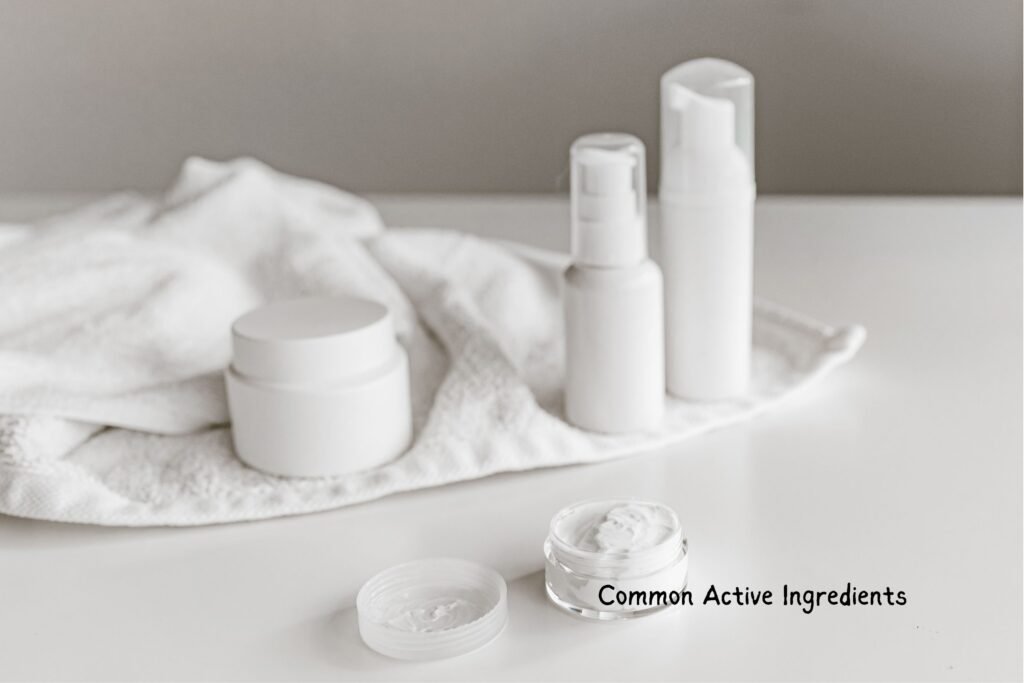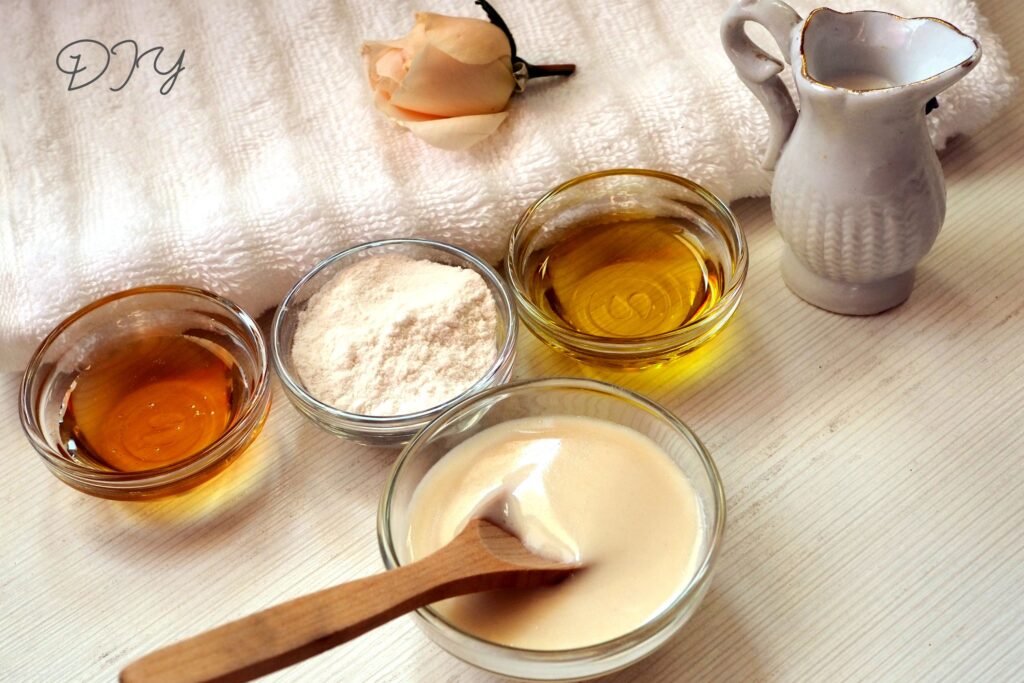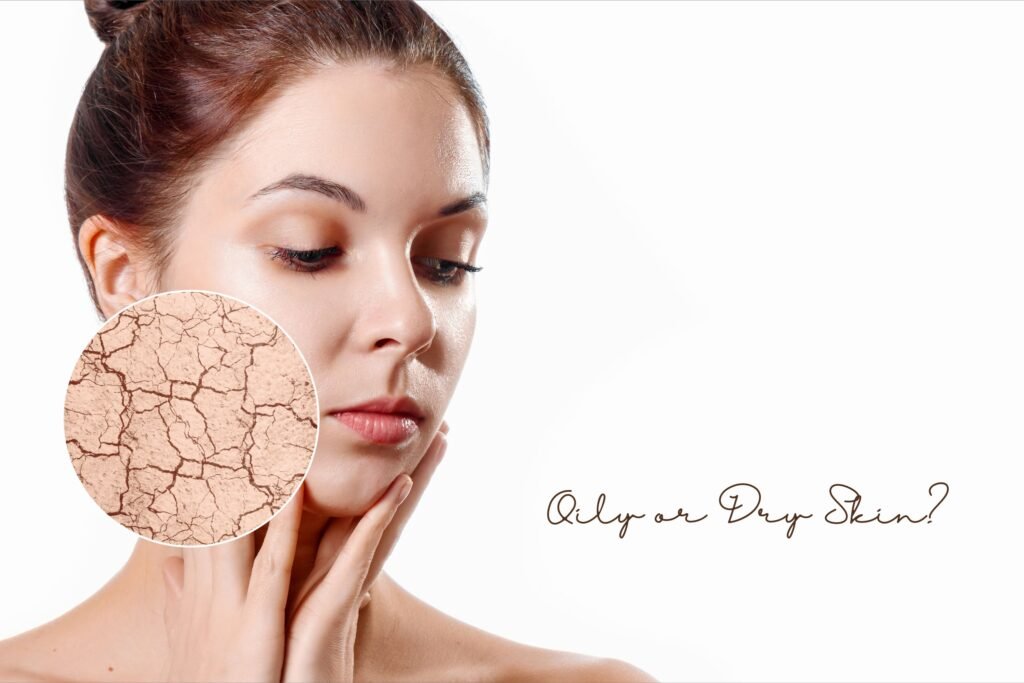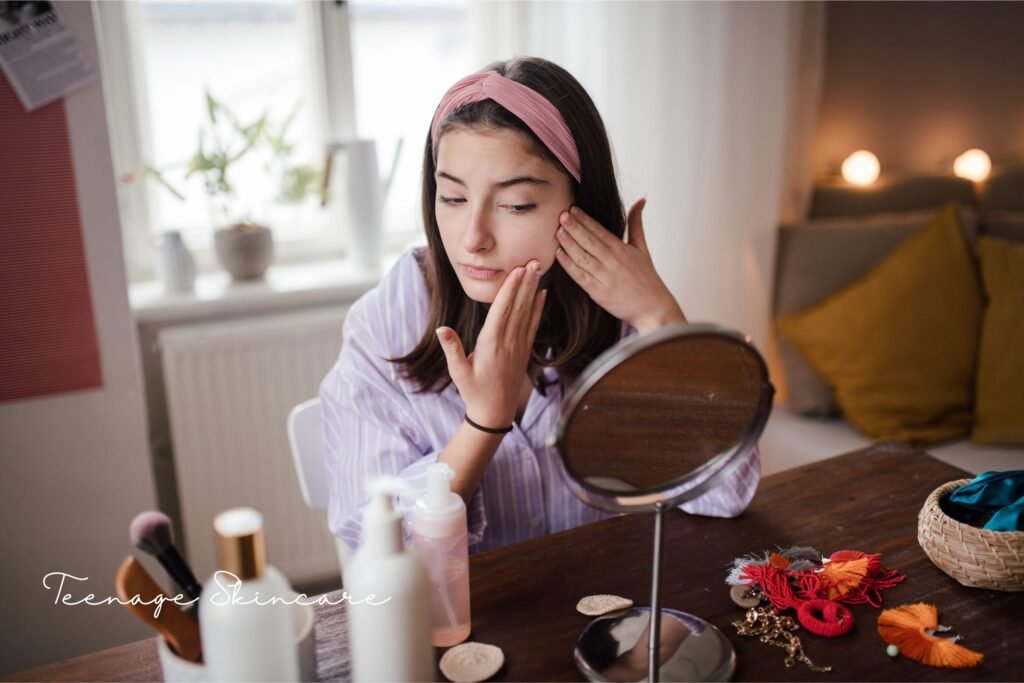Skin care is necessary to have healthy skin. Based on our skin type skin care is different. Nowadays, skincare products have harsh chemicals on them. These chemicals break our skin barrier and make the skin more susceptible to issues like pimples, redness, blemishes and using natural products makes our skin healthier without any side effects.
Natural ingredients work as skin food. These are easy to use and are available. Here is a 6-step natural skin care routine provided for you.
Cleansing: The Essential First Step in Natural Skin care
Every skincare routine should begin with a solid cleansing step. Cleansing helps to remove dirt, oil, and impurities that can clog pores, which is crucial for maintaining healthy skin. The right cleanser, suited to your skin type, can make all the difference. If you’re unsure about your skin type, check out this guide on how to determine your skin type to find the best products for your needs.
Natural cleansers such as honey, milk, yogurt, and coconut oil are gentle yet effective alternatives to conventional cleansers. These ingredients have unique properties that not only cleanse but also nourish the skin.
Removing Makeup with Coconut Oil
If you have makeup on, consider starting your routine with coconut oil. Coconut oil is rich in fatty acids, which help to break down stubborn makeup, including waterproof products. To use, put 3-4 drops of coconut oil on your palms, gently rub it into your skin, and focus on areas with makeup. This not only loosens the makeup but also provides a boost of moisture, preventing the skin from drying out.
Cleansing by Skin Type
After removing makeup, choose a cleanser that aligns with your skin type:
- For Dry Skin: Milk and yogurt are ideal. Milk contains lactic acid, which gently exfoliates while keeping the skin soft and hydrated. Yogurt, rich in probiotics and natural fats, provides similar benefits and is particularly soothing for sensitive, dry skin.
- For Oily Skin: Honey is a great option. Honey has natural antibacterial properties, making it perfect for preventing breakouts. It also helps to remove excess oil without stripping the skin’s natural moisture.
Cleansing is more than just a basic step, it’s the foundation of any skincare routine. A good cleansing habit sets the stage for other products to be absorbed effectively, resulting in healthier, glowing skin over time.
Exfoliation: The Secret to a Fresh Glow
After double cleansing, exfoliation is the next step to achieving that fresh, radiant glow. Exfoliating helps to gently lift away dirt, oil, and buildup that can dull our skin’s natural brightness. By removing dead skin cells, it reveals smoother, more luminous skin underneath. However, it’s important to be mindful of how you exfoliate, especially when it comes to chemical exfoliants, as they can penetrate deeper, potentially making the skin more sensitive if used too frequently.
For a more comprehensive guide on how to exfoliate properly based on your skin type, check out my post How to Exfoliate Properly by Skin Types at Home for Glowing Skin: Natural Remedies, Tips, and Tricks. It offers valuable insights and techniques tailored to your specific skin needs, ensuring you get the best results without overdoing it.
For a gentler, more natural approach, consider using kitchen-friendly exfoliants like coffee and sugar. Sugar mixed with a few drops of lemon juice creates a natural scrub with fine, gentle grains, perfect for a more intense exfoliation that leaves skin soft and renewed. Coffee grounds, on the other hand, not only exfoliate but also stimulate blood circulation, giving skin a firmer, energized look.
Keep in mind that less is often more with exfoliation. Overdoing it can cause irritation and strip the skin of essential oils. Stick to exfoliating twice a week for no more than 30 seconds each time. Rinse with lukewarm water, pat your skin dry, and follow up with a nourishing moisturizer to seal in the benefits.
Natural Toner: A Gentle Boost for Your Skin
Toning is an essential step in skincare, often overlooked but crucial for maintaining a balanced skin pH. After exfoliating, there might still be some residue left behind toning steps in to gently remove that last trace of dirt, giving your skin a fresh start. Choosing a natural toner can be a smart move, as it’s gentle on your skin without the risk of harsh side effects.
Rose Water: The Classic Natural Toner
Rose water has long been celebrated for its gentle, soothing properties. It’s naturally derived, widely available, and free from harmful chemicals. Beyond just toning, rose water adds a refreshing layer of hydration, calming and softening the skin with each use.
If you’re interested in making your own rose water at home, check out my detailed guide on how to make rose water. It’s a simple process that allows you to enjoy the benefits of this wonderful toner while knowing exactly what goes into it.
Apple Cider Vinegar: Balancing and Cleansing
Apple cider vinegar (ACV) is another powerful natural toner. Known for its pH-balancing ability, ACV also has antimicrobial properties, making it effective against bacteria that can cause breakouts. Just a note of caution: always dilute ACV with water before applying to avoid any irritation.
How to Apply Your Toner
To get the best out of your toner, use 2–3 drops on a cotton ball and gently dab it across your face. This ‘dab-dab’ motion ensures the toner is absorbed effectively without pulling at the skin. Embrace this simple, mindful step, and your skin will thank you with a refreshed, healthy glow.
Natural Serums: A Personal Guide to Skin Care
Serums are like little skin care powerhouses, packed with concentrated ingredients that dive deep into the skin, bringing about noticeable improvements. As someone who’s 26 and loves to keep my skincare routine simple yet effective, I’ve found that using a serum targeted to my skin’s needs makes a world of difference.
Each serum works in its own way to address specific skin concerns, so it’s easy to personalize. If you’re not sure which serum is right for you, I’ve written a detailed guide on how to find serums for your skin condition. Here’s what I’ve learned about some popular options:
-
Brightening Boost with Vitamin C: When my skin looks dull or uneven, I reach for a Vitamin C serum. It’s like giving your skin a burst of sunshine, helping to fade spots and add a natural glow.
-
Hydration with Hyaluronic Acid: If your skin feels dry or just lacks that healthy plumpness, try a serum with Hyaluronic Acid. I love how it keeps my skin hydrated without feeling heavy, and it leaves my face soft and supple.
-
Tea Tree Oil for Acne-Prone Skin: This is my go-to for breakouts or when I’m dealing with a bit of redness. Tea Tree Oil is fantastic for acne-prone skin, helping to calm and clarify without being too harsh.
Applying these is easy. Just a few drops, and I gently pat it into my skin until it’s fully absorbed. Using serums daily has truly transformed my skin over time, and it feels great to give it the attention it deserves.
Moisturizer: Your Skin’s Essential Hydration Boost
Applying a moisturizer isn’t just a step; it’s a way to seal in all the skin-loving nutrients you’ve layered on. Think of it as the protective layer that keeps your skin hydrated, soft, and comfortable throughout the day. Without proper moisture, your skin may overcompensate by producing extra oil, which can lead to that unwanted shine by midday.
Different skin types call for different approaches: if you have dry skin, your skin craves extra hydration, so don’t be shy with your moisturizer. For those with oily or combination skin, a lighter layer will do the trick. One of my personal favorites is Aloe Vera, it’s a powerhouse when it comes to natural hydration. Not only does it soothe, but it also feels refreshingly cool on the skin.
You can also make your own rich moisturizer at home. I’ve found that combining aloe vera gel, rice cream, and a few drops of vitamin E oil creates a hydrating blend that’s perfect for locking in moisture. Just take a small scoop, warm it between your hands, and gently press it into your skin for that plump, dewy look.
Natural Sunscreen: Protecting Your Skin with Care
Incorporating sun protection into your skincare routine isn’t just a step; it’s an investment in your skin’s health and longevity. Natural sunscreens provide a gentler, skin-friendly shield against the sun’s damaging rays without relying on synthetic chemicals. These sunscreens are a fantastic choice if you’re mindful of both your skin’s health and the planet.
When shopping for a natural sunscreen, look for those containing mineral-based ingredients like zinc oxide and titanium dioxide. These minerals act as a physical barrier on the skin, effectively reflecting harmful UV rays. Unlike chemical sunscreens that absorb UV rays and may irritate sensitive skin, mineral sunscreens sit on the skin’s surface, offering a safer and often more soothing alternative.
To maximize protection, apply a generous layer of sunscreen on your face and neck every morning—yes, even on cloudy days when the sun may feel less intense. If you’re spending extended time outside, reapply every two hours. I like to think of it as a little act of self-care, giving your skin the extra attention it deserves. After all, protecting your skin today means preserving its health and beauty for years to come. For more on the importance of sunscreen, check out my post on why you should use sunscreen.
Embracing a natural skincare routine is like nurturing a garden. Each step: cleansing, exfoliating, toning, moisturizing, treating, and protecting, plays a vital role in keeping your skin healthy and vibrant. Remember, your skin is unique, and it deserves the best care tailored to its needs.
With a little patience and consistency, you’ll see the fruits of your labor in the form of a radiant complexion. So, take a moment each day to care for your skin; it’s not just a routine, but a loving ritual that reflects your inner beauty.





